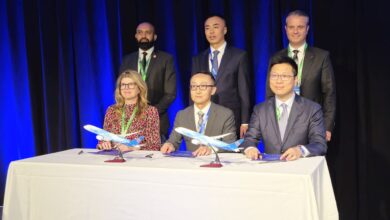
NZ in `turf war’ with OTAs
New Zealand accommodation providers are being urged to bolster their websites and social media accounts in an increasingly fierce “turf war” with overseas-based online travel agents.

Sally Attfield, General Manager Accommodation at Hospitality New Zealand, says while OTAs have a role to play in her industry, she is a strong advocate of properties always encouraging guests to book directly.
Her comments come in the wake of New Zealand hotels paying $NZ58 million in commissions to third-party websites last year, and Labour MP Kieran McAnulty, following the lead of Australian entrepreneur Dick Smith, launching a campaign urging consumers to take out the middleman.
Ms Attfield said: “For accommodation providers who want to avoid paying the booking commissions that OTAs charge, it’s critical that their website and social media accounts are easy to follow, kept up-to-date with good high quality photos of the rooms and amenities and have a clear call to action.
“Additionally, free search tools like Google Maps should be utilised and key messages such as `follow us on social media’ should be clearly and regularly communicated. An ongoing challenge for many operators is that if the customer doesn’t know you exist, how are they going to find you to book directly?”
Henriette Stevens from the Colombo in the City Motel and Apartments in Christchurch, told AccomNews: “The OTAs are a big problem in New Zealand.
“As a small motel we are really hit hard in the pocket with the likes of Agoda and Booking.Com undercutting prices and we are still expected to pay 15 per cent commissions.
“We set a tariff and then we find the OTAs undercut it and advertise that price without permission so that we end up making nothing from the room after they take their commission. We end up going backwards.
“It feels like we are working for the Online Travel Agencies rather than for ourselves.”
Ms Attfield stressed that the OTAs were “part of the distribution system that is embedded in accommodation globally” but through their marketing reach an OTA bias had been created.
“Whilst the online travel market is dominated by a relatively small number of OTAs, they typically have a marketing reach (and extensive marketing budgets) that no single operator can compete with,” Ms Attfield said.
“It may seem like a bit of a turf war between OTAs and accommodation operators (and we’re big advocates on getting customers to book direct), but there’s no denying that OTAs can be an effective marketing tool to fill rooms that might have otherwise stayed vacant.
“That being said, accommodation operators should encourage OTAs to be transparent about what they are doing and keep an eye on what’s going on with commission charges and rates. It’s about being smart. A clear disadvantage for the smaller operators is that they have very little clout with the OTAs, given that they hold excessive market share.
“We’d recommend that operators develop regular communication with OTAs, so they can be held to account and nothing gets lost in translation.
“As previously suggested to the Commerce Commission, we recommend a regulatory review into the narrow parity in contracts that negatively affects both businesses and customers, and must be addressed.”
Grantlee Kieza OAM has won three Queensland Media Awards, two Australian Sports Commission Awards and has been a finalist for the Walkley and News Awards and for the Harry Gordon Award for Australian sports journalist of the year. In 2019 he received the Medal of the Order of Australia for his writing. You can find more of his work in our AccomNews & Resort News print magazines.
He has written 22 acclaimed books, including bestsellers Hudson Fysh, The Kelly Hunters, Lawson, Banks, Macquarie, Banjo, Mrs Kelly, Monash, Sons of the Southern Cross and Bert Hinkler.








Many hotels pay in excess of $1 Million a year to overseas based websites, in commission fees and more. These sites drive down yield and drive up costs while diluting brands of properties. At the end of the day, it is essential for hotels and accommodation providers to ‘own’ their customers directly and engage with them on a one on one basis.